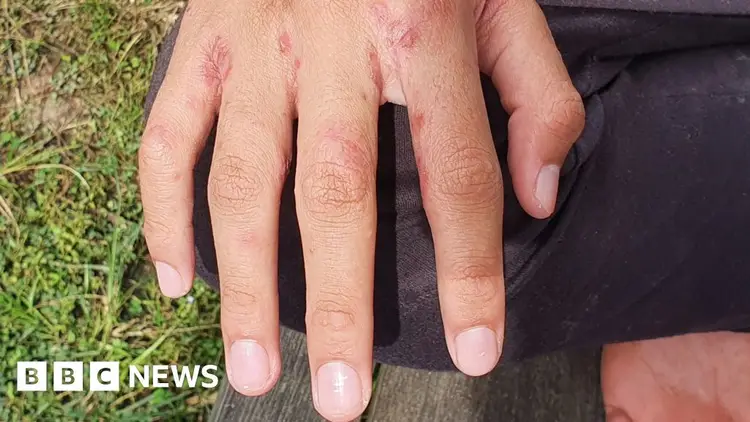Scabies: Doctors warn people not to ignore rash

Doctors Warn: Don't Overlook Scabies Signs
If left untreated, scabies can result in additional skin infections.
Individuals are advised not to overlook an itchy rash, as general practitioners in England have noticed an increase in cases of scabies, a highly contagious skin condition.
This condition is triggered by a tiny mite that digs into the skin to deposit its eggs. It spreads through direct skin-to-skin contact, as well as through shared bedding and clothing.
The Royal College of GPs (RCGP) noted that it can easily transmit in environments where individuals are in close proximity to one another, like universities and nursing homes.
However, the article noted that "social stigma" kept individuals from stepping forward.
Professor Kamila Hawthorne, chair of the RCGP, pointed out that even though such cases are still rare, the number of diagnoses made by GPs is "higher than the average from the past five years and is increasing, with a notable rise in cases in northern England."
"It's not a major health issue, but scabies can cause a lot of itching and discomfort," she explained.
"If not treated correctly, it can spread and elevate the risk of complications for the patient, like secondary skin infections or worsening any existing skin issues."
According to NHS data, hospitals in England reported 3,689 new cases in the year leading up to April, an increase from 2,128 cases the year before.
The BBC spoke with individuals from five different universities across the nation, who reported numerous instances appearing unexpectedly, with entire residences affected by scabies.
A student mentioned that the "small red spots" on his wrist had started to spread.
"One of my roommates revealed that she was dealing with scabies too. That's when I realized, 'Oh, I have it as well.'"
One student shared that he had been trying to eliminate it for "two to three months." When we inquired about how he suspected he had contracted it, he responded, "Most likely from spending a lot of nights together."
Professor Hawthorne noted, "We understand that patients might feel hesitant to pursue treatment due to the social stigma associated with the condition. However, it's crucial for them not to overlook their symptoms, as this could worsen their situation and increase the risk of spreading the condition to others."
Doctors recommend that everyone who is infected should receive treatment simultaneously using a cream or lotion available at the pharmacy.
Patients are encouraged to launder their sheets and clothing in hot water.
Dr. Alison George, a general practitioner in northern England who serves in an emergency department, noted that a lot of students arrive at A&E, but typically only after their condition has significantly deteriorated.
"It can be quite unpleasant. When it affects a large area of the body, it becomes much harder to manage."











































